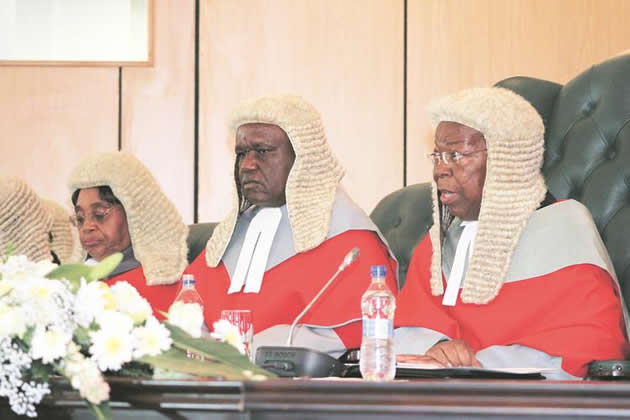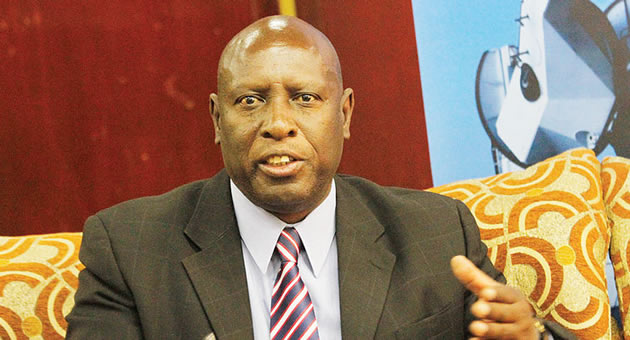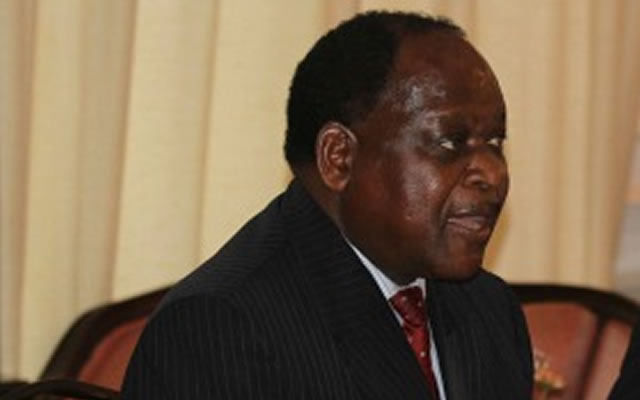Top courts mull ban on junior lawyers


Chief Justice Godfrey Chidyausiku addresses the Judiciary while flanked by his deputy Luke Malaba (centre) and Justice Elizabeth Gwaunza at the official opening of the 2016 legal year in Harare yesterday. — (Picture by Memory Mangombe)
Daniel Nemukuyu Senior Court Reporter
The Judiciary wants inexperienced and incompetent lawyers barred from representing people in the superior courts because of their low standard of performance, the Chief Justice has said.
Officially opening the 2016 legal year in Harare yesterday, Chief Justice Godfrey Chidyausiku said debate had begun with the Law Society of Zimbabwe (LSZ) on how the plans could be implemented.
The debate includes whether or not the legal profession should revert to the old system where the superior courts were a preserve of advocates.
Before independence, lawyers were divided into advocates and attorneys, with only advocates allowed in the superior courts.
Attorneys are lawyers who do legal work of all kinds and operate from law firms, while advocates are specialist litigators who work on a referral basis.
In terms of that system, attorneys may represent clients up to the magistrates’ court level, while advocates have unlimited access to superior courts like the High Court, Supreme Court and Constitutional Court.
Chief Justice Chidyausiku expressed concern at the performance of some lawyers.
He however, said advocates had proved to be of much assistance to the superior courts.
To that end, the Chief Justice said, the Judiciary had engaged the LSZ on the best way forward.
“In another forum, I have had occasion to express my views on the standard of legal representation in this country,” he said.
“I find it a mixed bag. Some practitioners are very good and assist the court in quickly concluding the matters before the court.
“We in the Constitutional and Supreme Courts have found, as a general rule, that advocates from the side bar are better prepared and are of much assistance to the court,” said the Chief Justice.
“On the basis of such observations, we have opened debate with the Law Society of Zimbabwe over the issue of whether or not the profession should remain fused or should be separated into advocates and attorneys.”
Individual lawyers yesterday joined the debate after the opening ceremony, expressing mixed feelings over the comments.
University of Zimbabwe Dean of Law Mr Emmanuel Magade welcomed the development, saying it promoted specialisation in the legal fraternity.
“It is a good idea because it allows for specialisation in terms of roles in the legal profession,” he said.
Mr Magade said the division of the profession was not a new thing in the legal history of the country, adding that the fusion had been done to end discrimination against black lawyers.
“This is the situation that used to obtain prior to the enactment of the Legal Practitioner’s Act of 1981,” he said. “The fusion of the profession was occasioned by the desire to banish the demons of the past where black lawyers were discriminated against and would not get any legal work.”
Mr Magade said black advocates and attorneys were heavily discriminated against and that fusion was introduced to open way for the advancement of capable black lawyers.
He said now that racism was over, it was time to revert to the division of the profession to promote specialisation.
University of Zimbabwe law lecturer Professor Lovemore Madhuku said the Chief Justice went outside his jurisdiction by judging the quality of lawyers.
“I think the Chief Justice has gone outside his jurisdiction,” he said. “It is not for judges to judge the quality of lawyers. Judges should do their work.”
Prof Madhuku said the idea of separating the profession was outdated.
“That is a very old fashioned line of argument,” he said. “We cannot go back to the 1970s era now. There is no separate law school for advocates in Zimbabwe,” he said.
“They go to the same school, get the same qualification and it is up to the individual to choose whether to join a law firm or to go to the Advocates’ Chambers.”
Another lawyer, Mr Terrence Hussein, said the splitting the profession was not the answer to the problem of poor representation.
“Superior courts insist on a level of experience and competence so that the quality of justice is enhanced,” he said. “My opinion is that, this will not be achieved by splitting the profession as competencies and inadequacies are found in both attorneys and advocates,” said Mr Hussein.
“The best way to address the issue is by improving the quality of legal practitioners who appear before the superior courts.”
Lawyer, Mr Modeccai Pilate Mahlangu, said he was in support of a divided profession, but emphasised it should be done in way that did not make others feel discriminated against.
“I believe the divided profession is ideal,” he said. “It makes it easier for the judiciary to look for judges when vacancies arise, instead going all over searching for good lawyers to join the bench.
“In the past, judges would simply be picked from advocates who were experienced and competent lawyers. But in splitting the profession, there should be a way of making sure some will not feel discriminated against considering that access to courts is a right for all.”








Comments